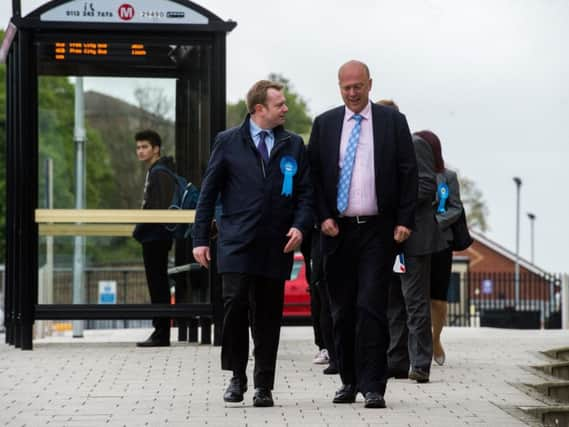The Yorkshire Post says: Why Chris Grayling's £3billion rail pledge raises more questions than answers


After all, it did not feature in Tuesday’s Commons debate about the transport spending, another Parliamentary occasion that Mr Grayling has snubbed, or Thursday’s departmental questions, an inquisition that he did have to endure.
Advertisement
Hide AdAdvertisement
Hide AdWhy make no mention of a scheme of this supposed magnitude? Though the Cabinet minister wanted to make a positive announcement at yesterday’s Northern Powerhouse conference in Leeds, it appears to be yet another dereliction of democratic duty exemplified by a litany of policy failures and U-turns.
And it is why The Yorkshire Post, backed up by this region’s MPs, will not shy away from holding him to account. For, while the £3bn commitment appears welcome at face value after the electrification of the trans-Pennine route was cancelled after the 2015 and 2017 elections, it was, in fact, first promised by Mr Grayling last November and is not new money, hence these questions.
First, Mr Grayling says £3bn has been “ring-fenced” for the line. What improvements are planned, how have they been determined, when will they start and will the full route from Hull, Scarborough, Middlesbrough and York to Leeds, Manchester and Liverpool be electrified?
Advertisement
Hide AdAdvertisement
Hide AdSecond, the Department for Transport press release says the scheme will be advanced “in lockstep with Crossrail 2”. Lockstep? Is work in the North contingent upon the £30bn scheme in London getting the green light?
Third, will Mr Grayling evaluate the plans put forward this week by George Osborne’s Northern Powerhouse Partnership which are far more ambitious and intend to dramatically reduce travel times across the North? Transport investment and economic growth here need to proceed in ‘lockstep’.
Finally, Mr Grayling should reflect on this. As he obfuscates, and tries to claim that this region is now better funded than London following decades of under-investment, why does he think he is so unpopular – and so mistrusted – in these parts?
His answers are awaited with interest. He might be able to circumvent Parliament – but he won’t be able to hide from the scrutiny of this newspaper, and campaigning MPs, on behalf of the travelling public.